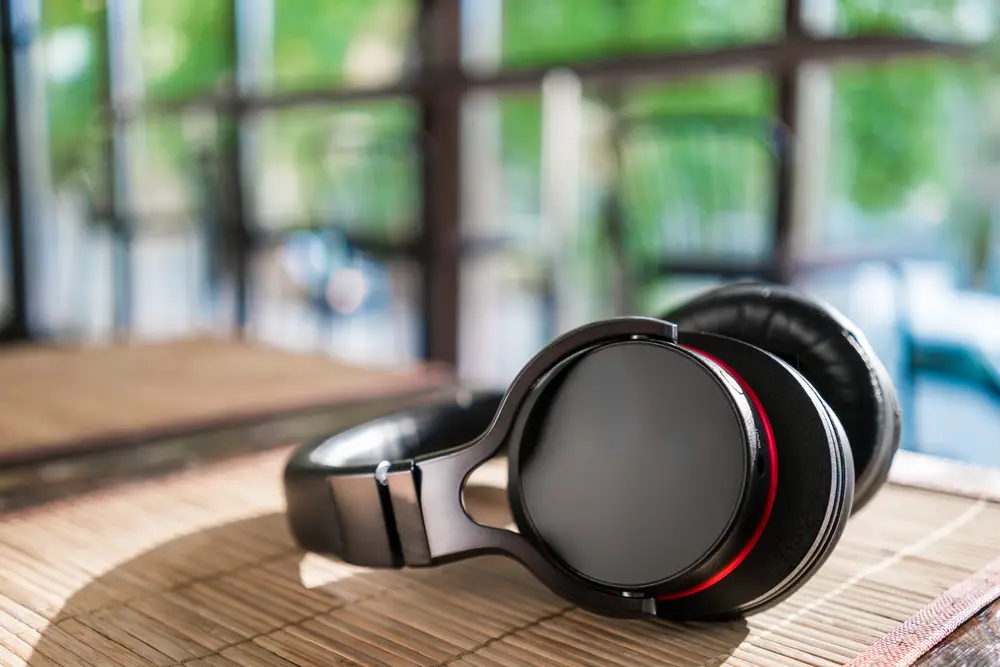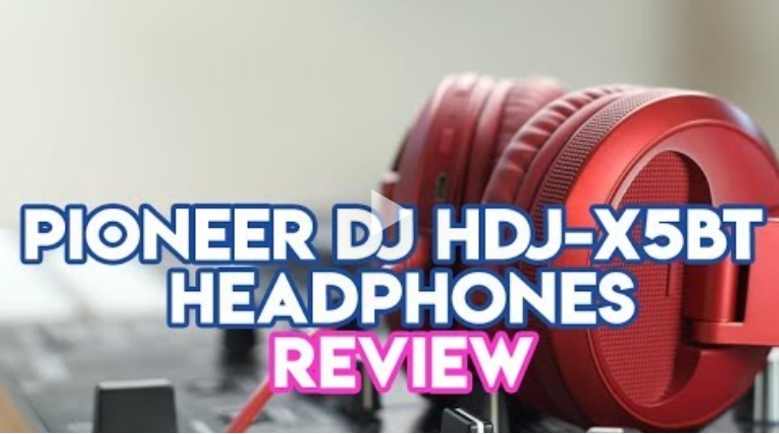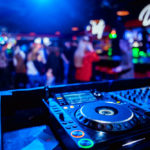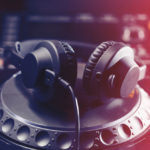Why Is Going Wireless Considered The Cardinal Sin Of Mixing?
Wireless headphones seem like a no-brainer for DJ sets — you can get lost in the music, throw some shapes without worrying about yanking your lead out, and truly put on a great show. So why then are they not more popular across DJ communities?
With people hooking them up to their phones and using them for general listening, we’ve seen a huge spike in the popularity of Bluetooth headphones in other sectors of the music tech market, but they never really got a foothold in the DJ scene.
Does this mean that you can’t or shouldn’t DJ with Bluetooth headphones? And, if so, why do DJ brands keep manufacturing them? All will be revealed below.

Is It Possible To DJ With Bluetooth Headphones?
To answer this question as bluntly as possible… No, it is not normally possible to DJ with Bluetooth headphones, the reason being that DJ controllers typically don’t feature any wireless transmitters.
And to be honest, even if our controllers did have Bluetooth transmitters, I, for one, would be sticking with my good old-fashioned wired headphones, and I’d recommend that you do the same.
Why, you ask? Well, the worry is that Bluetooth connections suffer from latency issues. For the uninitiated, latency simply refers to the time it takes a signal to reach one device from another.
In other words, latency is the time difference between us, say, scratching a jogwheel, and us hearing the scratching in our headphones.
Wireless technology may be convenient in that we don’t get tangled up in a spider’s web of cables, but it’s the cables that reduce latency, ensuring we hear everything we do, as we do it.
Can I Modify My DJ Controller To Receive Bluetooth?
If you really wanted to give wireless DJing a go, it is possible, but you’ll need something like this TP-Link Bluetooth Receiver, a little gizmo that imbues your controller with wireless technology.
But, and it’s a very big but (no laughing anyone), you’re still left with the latency issue, and being that there’s a bridge device involved, the latency stands to be even worse than usual.
Why Is It A Bad Idea To Try And DJ With Bluetooth Headphones?
We’ve already spoken a lot about the latency problems of Bluetooth, and we’ll dive deeper into that in just a sec, but another factor you may not have considered is the battery dependency of wireless headphones.
Bluetooth And Battery Life
Now, I know that the big headphone brands out there are doing great things with their batteries. Hell, some will even last upwards of 30 hours if you tone down advanced features such as noise cancellation.
But, as great as that is, it really doesn’t help the humble DJ out all that much.
I can’t speak for you, but I’m just as likely to forget to charge a pair of Bluetooth headphones with a long battery life as I am a pair with a 3–6-hour battery life, which means they’re just as likely to run out of juice midway through a set — a devastating and embarrassing blow!
If this happens to you, well… good luck trying to book that venue again.
Okay, I’m sure you’ll all be pleased to hear that that’s my battery rant out of the way, but now I’m going to double back and rage against Bluetooth latency one last time.
Bluetooth Latency And The Death Of Rhythm
The average audio latency you’ll experience using Bluetooth headphones is 150ms. I know that considering there are 1000 of these little guys in every second, 150 doesn’t seem all that significant, but it’s enough to completely throw off your beat matching.
For example, let’s say you’re trying to beat match two songs at 120BPM, as that’s a relatively common pace for floor-filling dance tunes.
- 120 BPM means you’re working with 120 beats per minute.
- That’s 120 beats every 60,000ms.
- Therefore, there should be a beat after every 500ms precisely.
- When you put it in these terms, you start to realize that 150ms isn’t so negligible at all, as it’s nearly a third of the gap between beats, but let’s get back to the situation at hand…
One song is playing through the monitors, while you line up the other track in your headphones.
They sound perfectly in sync, the energy is just right, and you can’t wait to see how the crowd reacts. As far as you’re aware, your beats align as they do in the following visualization.
However, when you slide the fader, the tunes aren’t matched at all, in fact, it’s utter chaos. This is because, without realizing it, you’ve compensated for the 150ms delay in your headphones.
The monitor doesn’t have the same latency issue, so when song B fades into the mix, it’s 150ms in front of song A.
This is known as a phase mismatch, and it looks a little something like this…
The top line is track A, your established beat playing through the monitors. Then you fade in song B, which is represented by the bottom line.
It’s not a tempo issue, as both song A and song B are playing at 120BPM, but the phasing is out of whack, staggering the beats, which may accidentally sound cool in an experimental kind of way, but will it be danceable? — No, absolutely not.
So, If They’re So Bad, Why Do DJ Brands Keep Manufacturing Bluetooth Headphones?
There are two reasons that DJ brands continue to manufacture Bluetooth headphones. The first is that they may not actually be a “DJ brand” in the strictest sense of the term.
Companies like V-MODA have become popular in DJ communities, but V-MODA products finding traction in said communities, such as the Crossfade 2 Wireless, were never intended for the DJ market.
And in regard to 100% DJ-oriented brands such as Pioneer, they may sell wireless headphones, such as the infamous HDJ-X5BT, but they include a detachable hardware cable too.
Even though these headphones are kitted out with aptX low latency codecs, bringing latency down to 40ms, the wireless functionality is still just a practical extra that isn’t intended to be used for mixing.
Summing Up
So, yes, if you invest in a wireless adapter, technically, you can give DJing with Bluetooth headphones a go, but I assure you that it’s a really, really bad idea!
If you want to start making a name for yourself and booking shows, you don’t want to become known for your inability to match beats, so do yourself and the dance floor a favor, and stick with the cables.
We hope you love the products we recommend. We may collect a commission if you purchase through one of our links. This doesn't cost you anything extra. If you do, thank you! As an Amazon Associate, I earn from qualifying purchases.








